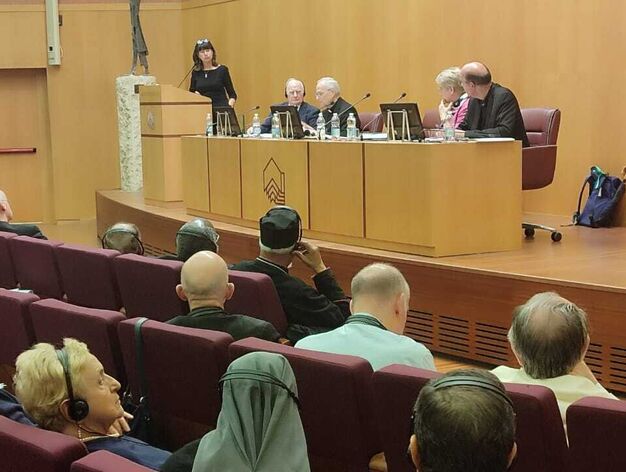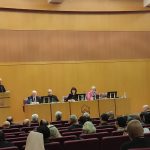
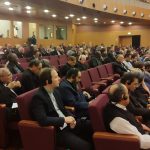
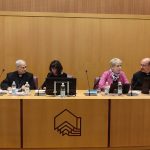
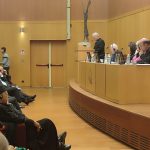
With Vatican II, the local Church is a part of the universal Church, in which the whole is present and acts, the richness of all sacramental and charismatic gifts is present.
Make the Good News of the Gospel a wellspring of life for all, advocating for an experiential model of expressing doctrine
Pastoral councils, at various levels, and provincial councils, true vehicles of the synodal Church in order to live the baptismal responsibility
“In each local Church there is the universal Church, but no local Church represents the entire essence of the universal Church”
Pastoral councils, at various levels, and provincial councils, true vehicles of the synodal Church in order to live the baptismal responsibility
“In each local Church there is the universal Church, but no local Church represents the entire essence of the universal Church”
The theological-pastoral forumsa novelty of the Second Session of the Synodal Assembly of the Synod on Synodality, have resumed their activity this Wednesday. On this occasion to address the topic of the Exercise of the Primacy and the Synod of Bishops, and the mutual relationship of the local Church-Universal Church.
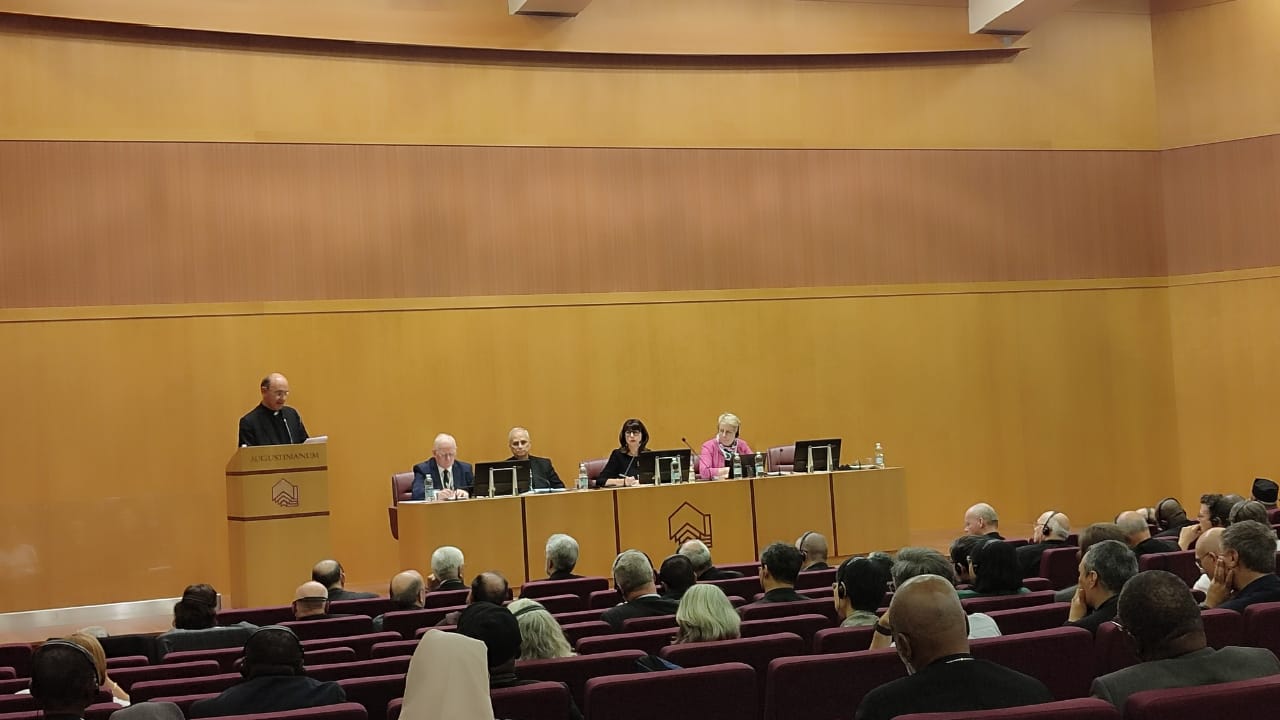
Relational and therefore synodal Church
“The Church is constitutively relational and therefore synodal,” stated Miguel de Salis Amaral, quoting the words of Pope Francis at the opening of the Second Session of the Synodal Assembly. In that sense, he said that “relationships nourish and sustain synodality,” stating that “The relationship between the local Church and the universal Church is a relationship that bases synodality”. From there he wanted to invite a look of faith towards that relationship, pointing to the Mystery, seeking to offer help in discernment to become a synodal and missionary Church.
From there he reflected on the theoretical core of the Mystery and its dynamic concretization, stating with Vatican II that the local Church is a part of the universal Church, in which the whole is present and actsthe richness of all sacramental and charismatic gifts is present. The local and universal Church are related, they are not alternatives, giving rise to several institutions in view of the mission, diverse with various legal formulations. The Christian belongs to the local and universal Church, so he is always at home, he stated.
Free Digital Religion Bulletin
I WANT TO SUBSCRIBE
In his words he highlighted the Eucharist and the episcopate as expressions of catholicity, of communion between the local and universal Churchthe universal being a body of churches, highlighting the importance of the plurality of places. “Synodality guides us towards an understanding of the relationship between the local and universal Church, and leads us to see the universal Church as a visible concretion of diversities,” he highlighted. Something that is realized in different ways, with different accents, in order to enrich everyone and favor synodal discernment, enriching the evangelizing mission.
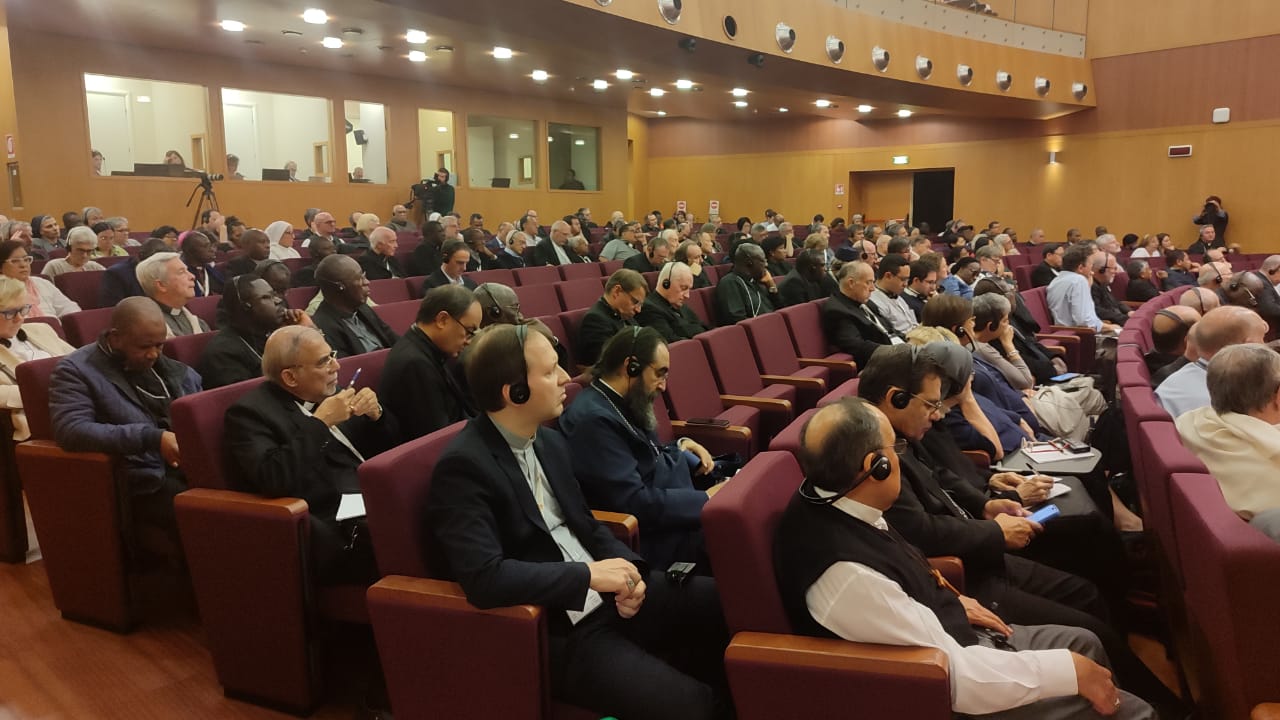
Missionary synodal life is experienced in the local Church
For Antonio Autierio, this theme is present in many parts of the Istrumentum Laboris, especially in the Places Module. From there he stood out the local church as a place where missionary synodal life is experienced. In his opinion there are two paths for the relationship between the local and universal Church, one with a hierarchical and pyramidal vision, emphasizing the universal Church, and another based on the People of God as a source of unity.
From a practical point of view, as a moral theologian he referred to the actions of the Church, reflecting on the exercise of authority in the local Church, highlighting the importance of context to understand the relationship between faith and moralitysince it is something that the culture of the town influences. Anthropology and social conditions cannot be left aside, considering the need to recognize the authority of teaching all believers, inspired by Karl Rahner, to make the Good News of the Gospel a source of life for all, advocating for a experiential model of expressing doctrine.
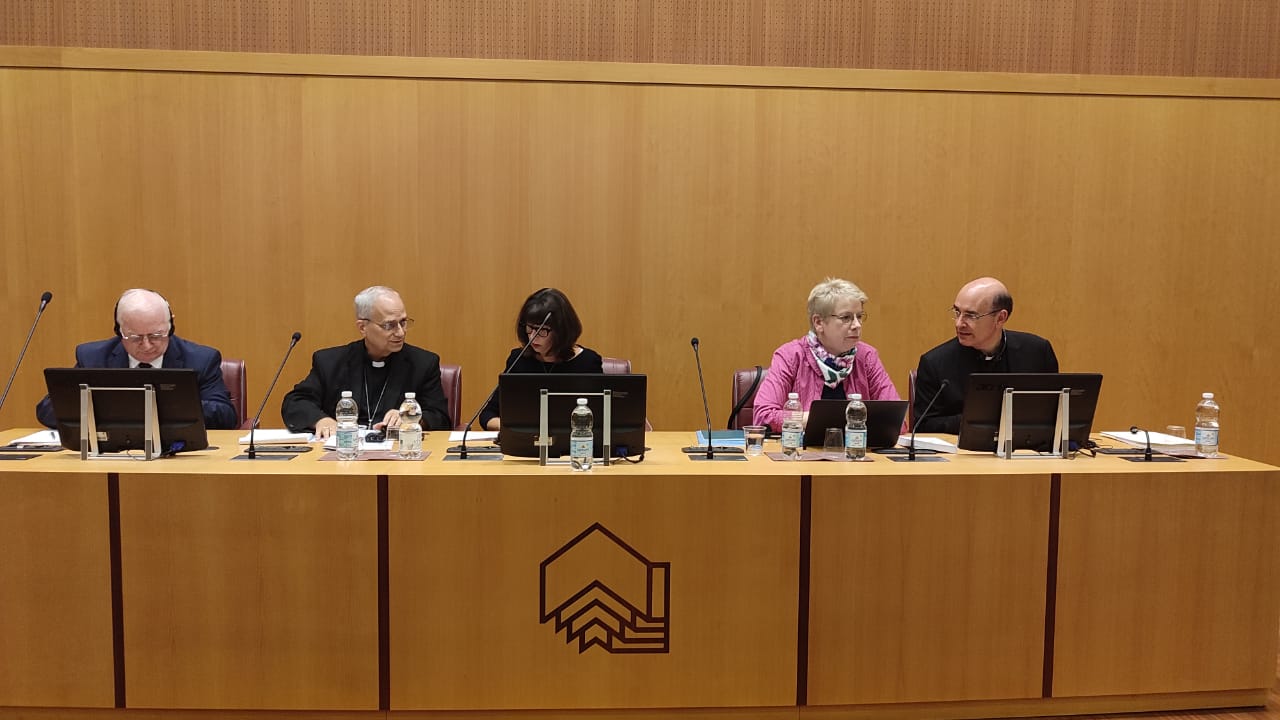
Pastoral councils and provincial councils
Miriam Wijlens spoke about pastoral councils, at various levels, and provincial councils, something that the People of God see as necessary, as true vehicles of the synodal Church in order to live the baptismal responsibilitymaking the Church inclusive, accountable, transparent and ecumenically responsive. In this perspective, he highlighted some elements: the method of selecting members, that they be elected and not appointed, with a diversity of presences, open to all, with members with a missionary, ecumenical disposition, with an agenda in which the members can present points in view of co-responsibility.
For these organizations to have an impact, it defends the obligation to listen to them, that everyone has all the information and that the people consulted can express themselves freely. Something that extends to the common work between neighboring churches, with the participation of the entire People of God, not only bishops, ecclesial organizations, where all participants have a deliberative vote, recounting who should be invited and their task. Finally, he referred to the decision makingwhose mode has been modified to respond to various needs, challenges and possibilities, a transformation process that must be present in a synodal Church.
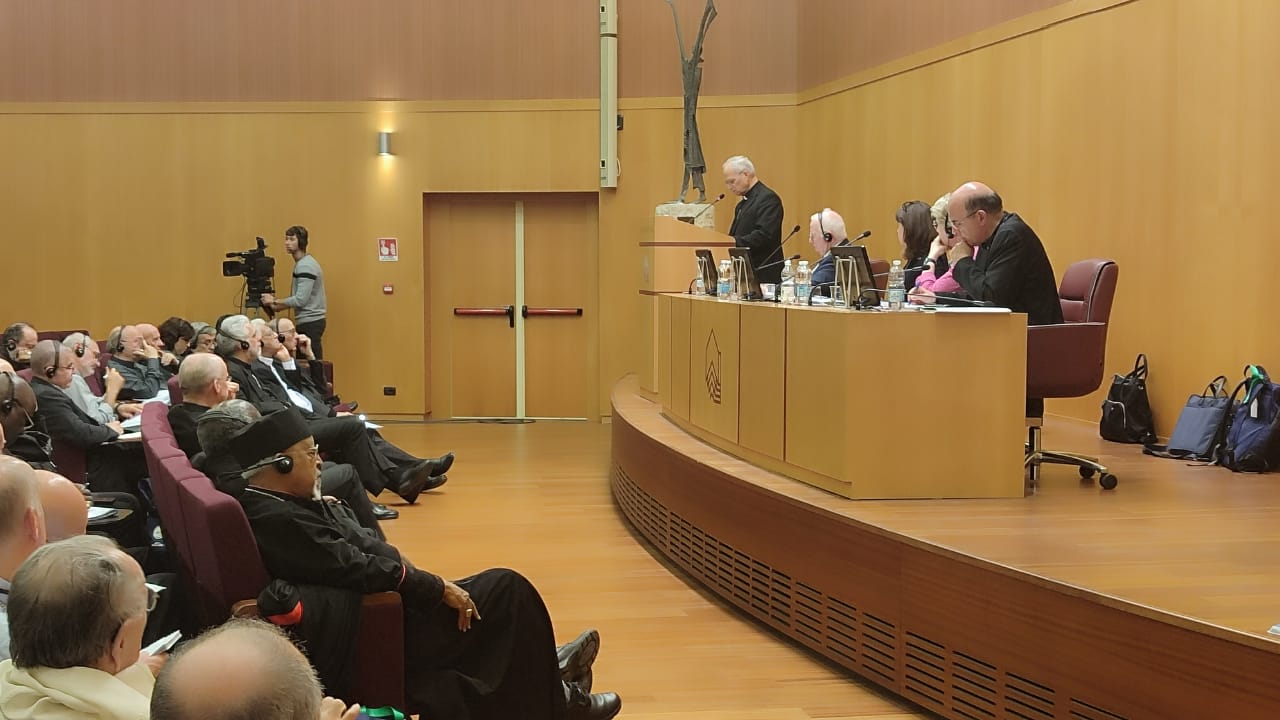
Local Church and Universal Church as unique
Finally, the prefect for the Dicastery of Bishops, Cardinal Robert Prevost, recalled that Saint Augustine affirmed the local Church and the universal Church as the onlywith the aim of announcing the Gospel. The prefect recalled the course for new bishops in which he participated, where bishops were called to look beyond the limits of their dioceses and understand what it means to be part of the Catholic Church, of the universal Church, of the importance of growing in a deep sense of communion, something that must be promoted in the face of so many situations of suffering.
The prefect of the Dicastery of Bishops showed in broad strokes the way in which bishops are appointed, referring again to the course for new bishops, which represents an experience of the universal nature of the Church, which is glimpsed in the fact of the meeting and dialogue with bishops from all parts of the world, each facing their challenges and obstacles. “Unity is created in diversity, but we must strengthen those bonds of communion”Prevost stressed, something he sees in smaller circles, where what it means to be part of the universal Church is understood.
“In each local Church there is the universal Church, but no local Church represents the entire essence of the universal Church“, stressed the prefect. For Cardinal Prevost, “perseverance in prayer is a primary duty in order to strengthen solidarity.” In his words he analyzed various realities that seek to create links between local churches, always with a view to announcing the gospel throughout the world.
